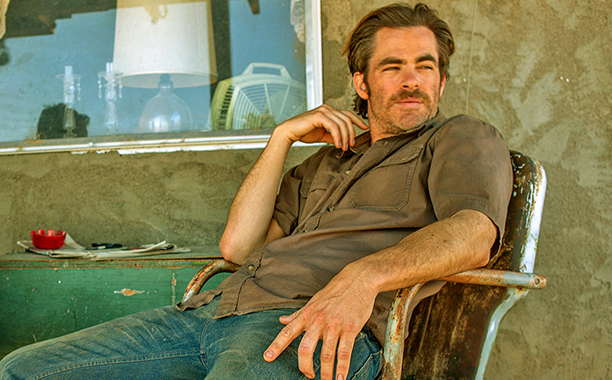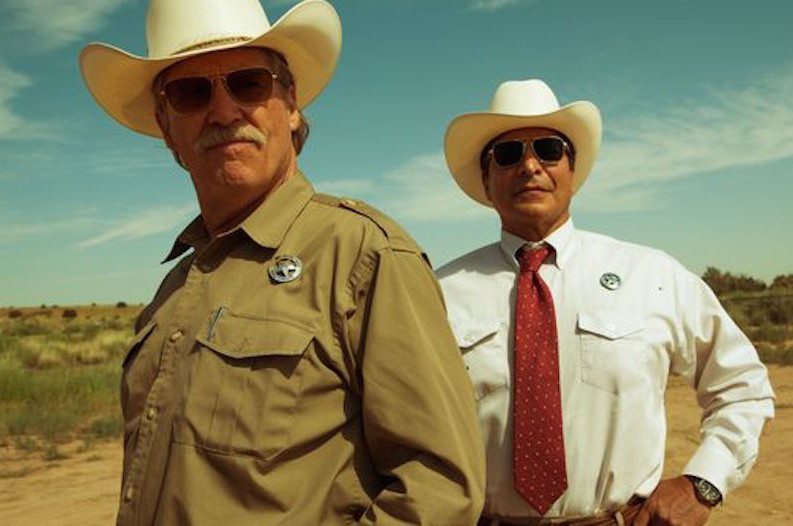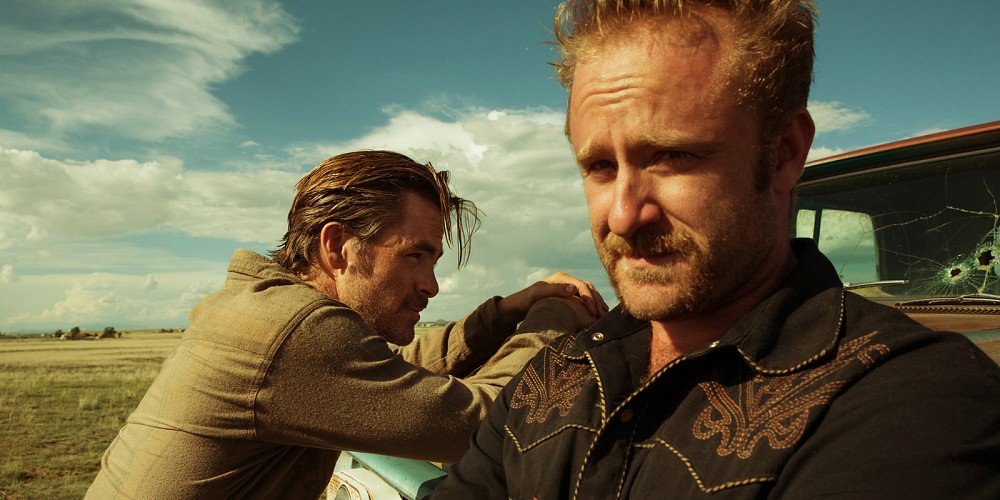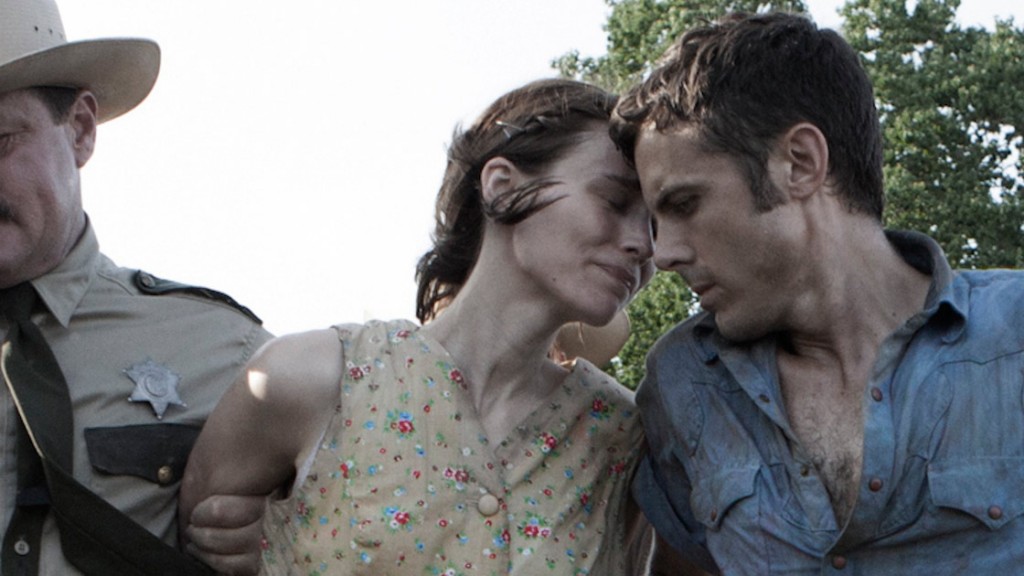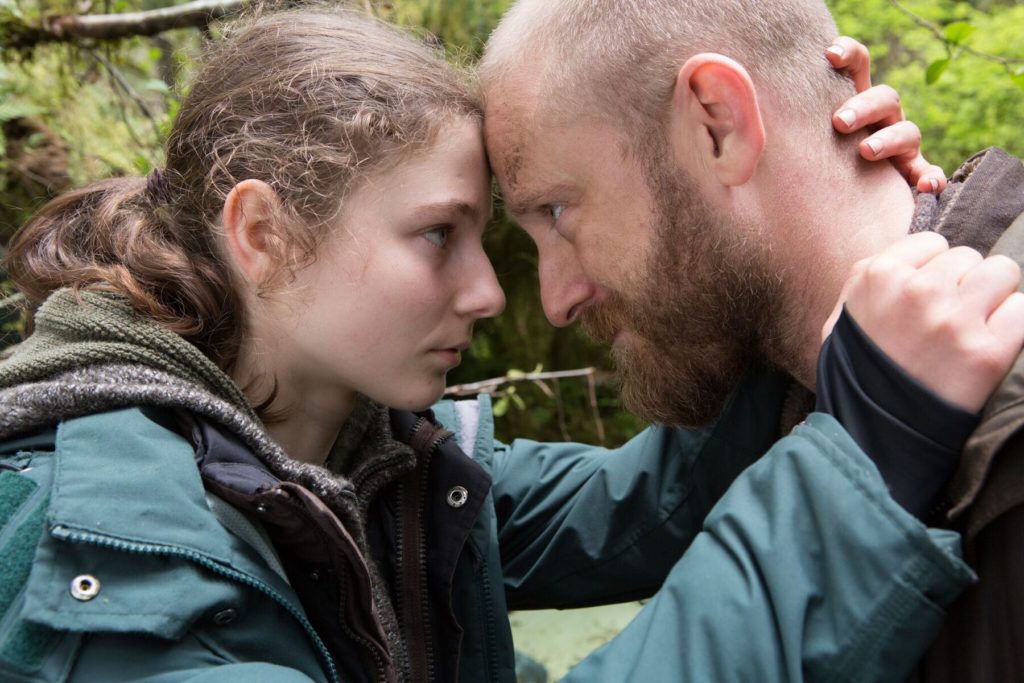
Here is the best movie of 2018 – the unforgettable coming of age film Leave No Trace. Ben Foster and Thomasin McKenzie star as a dad-daughter team who challenge conventional thinking about homelessness and healthy parenting. Leave No Trace is writer-director Debra Granik’s first narrative feature since her Winter’s Bone (which I had rated as the best film of 2010).
When we meet Will (Foster) and his daughter Tom (McKenzie), they are engaging in extremely low impact camping in a fern-rich Oregon forest, to the point of solar cooking foraged mushrooms on a mylar sheet. Dad and daughter are both survivalist experts and work together as a highly trained team. They have the fond, respectful, communicative relationship that most families with teen children aspire to but can only fantasize about.
But Will and Tom are not on vacation. They do not consider themselves homeless, because the forest is their home. However, their lifestyle just isn’t consistent with contemporary thinking about child welfare. Furthermore, living in a public park is illegal,and when they are discovered, social service authorities are understandably and justifiably concerned. Investigators find Tom to be medically and emotionally healthy, Will to be free of drug or alcohol abuse, and there has been no child abuse or neglect – other than having ones child living outdoors and not going to school.
Will is a veteran who has been scarred by his military service, and he is clearly anti-social. But Will is not your stereotypical PTSD-addled movie vet. He is a clear thinker. His behavior, which can range to the bizarre, is not impulsive but deliberate.
Fortunately, the Oregon, social services authorities are remarkably open-minded, and they place Will and Tom in a remote rural setting in their own house at a rural Christmas Tree farm. Will can work on the farm, Tom can go the school, and there’s a liberal non-denominational church filled with kind folks. It’s a massive accommodation to Will and Tom’s lifestyle, only with the additions of living under a roof and public education.
Tom blossoms with social contact, and particularly enjoys the local 4-H and one kid’s pet rabbit named Chainsaw. Tom begins to understand how much she needs human connection – and not just with her dad,
But Will can’t help but feel defeated. When Tom suggests that they try to adapt to their new setting, he scowls, “We’re wearing their clothes, we’re living in their house, we’re eating their food, we’re doing their work. We’ve adapted”. She argues, “Did you try?”, “Why are we doing this?”, and “Dad, this isn’t how it used to be”.
Ben is so damaged that his parenting can nurture Tom for only so long. Leave No Trace is about how he has raised her to this point. Has he imparted his demons to her? Has he helped her become strong and grounded enough to grow without him?
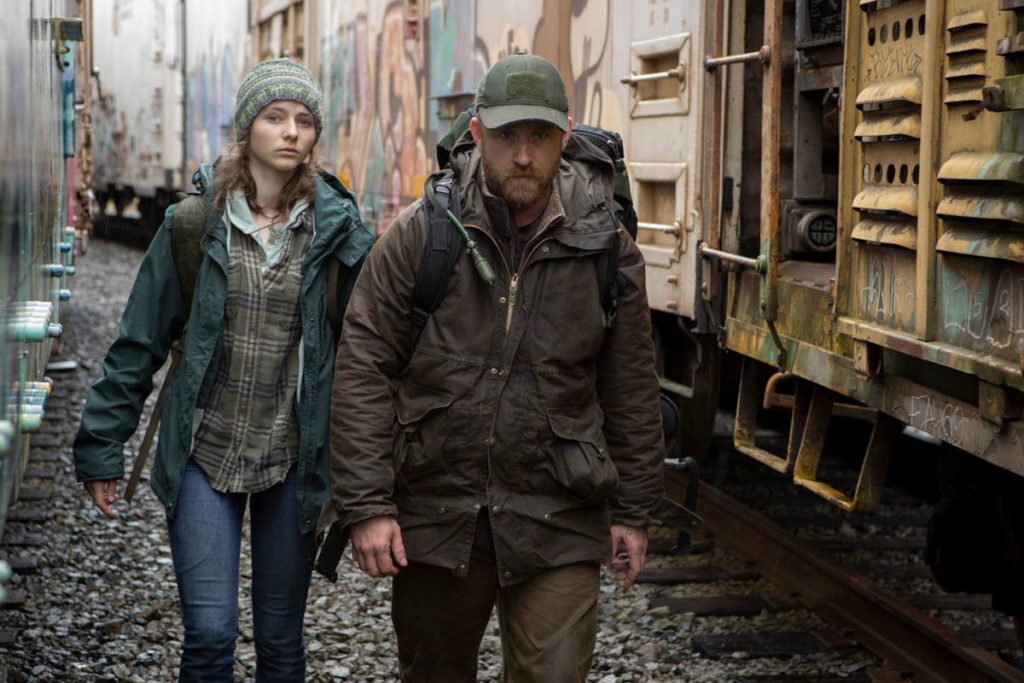
Winter’s Bone launched the career of Jennifer Lawrence, and Leave No Trace might do the same for newcomer Thomasin McKenzie. McKenzie is riveting as she authentically takes Tom from a parented child to an independent young woman. At the San Francisco International Film Festival screening, producer and co-writer Anne Rosellini said “there’s an ‘otherness’ to McKenzie,” who had “tremendous insight into the character”. Rosellini added that McKenzie and Ben Foster bonded before the shoot, as they rehearsed with a survivalist coach.
Foster is no stranger to troubled characters (The Messenger, Rampart, Hell or High Water). Here, he delivers a remarkably intense and contained performance as a man who will not allow himself an outburst no matter what turbulence roils inside him. Rosellini noted that “Will is elusive, a mysterious character to everybody”. It’s a performance that will be in the conversation about Oscar nominations. Actors Jeff Kober, Dale Dickey, Dana Millican and Isaiah Stone (the little brother in Winter’s Bone) are also excellent in smaller roles.
Leave No Trace is thoughtful and emotionally powerful. Superbly well-crafted and impeccably acted, it’s a Must See. Leave No Trace is available for streaming from Amazon, iTunes, Vudu, YouTube and Google Play.

